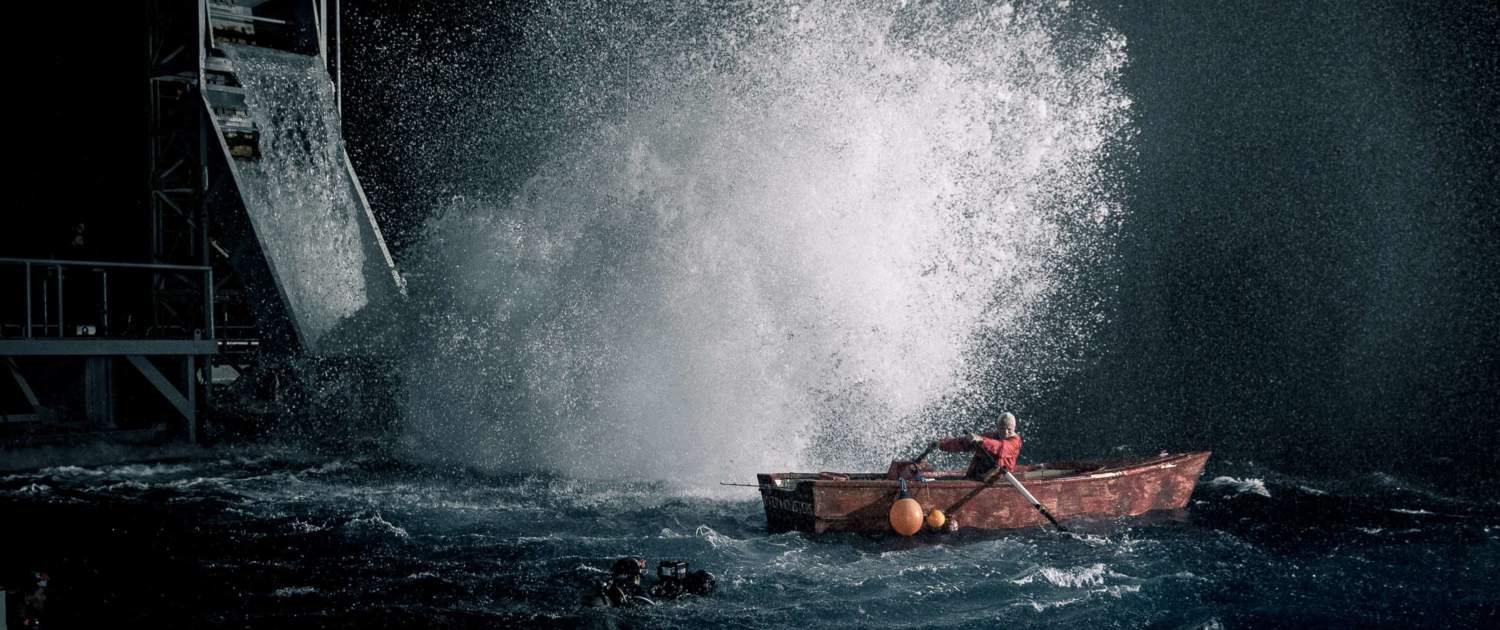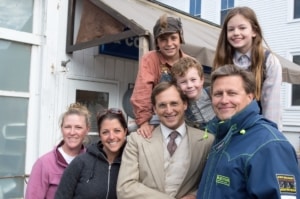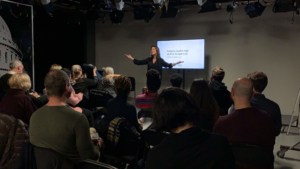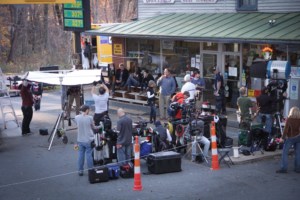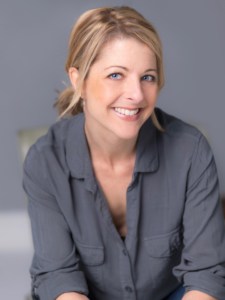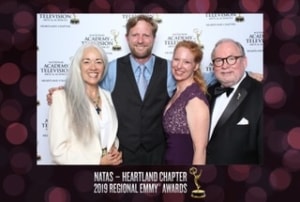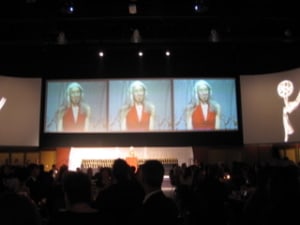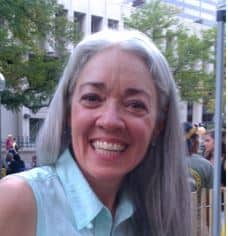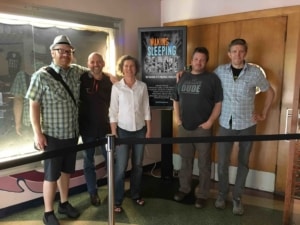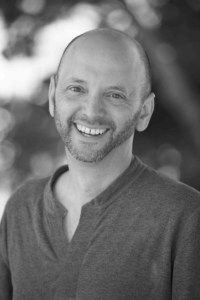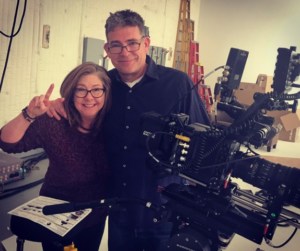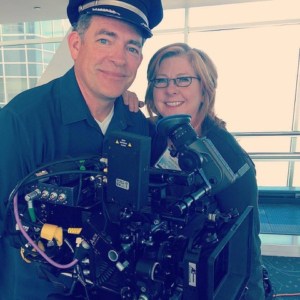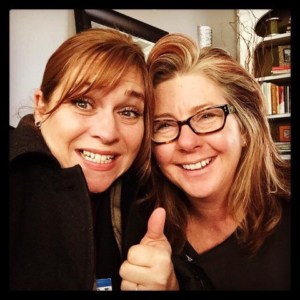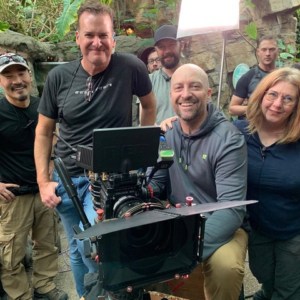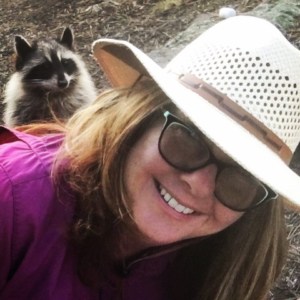Summary
Meryem Ersoz is one of Colorado’s top film producers and has worked on projects ranging from the $200,000 to $3,000,000. Her local production company, Red Pine Studios provides local Colorado production services and supported the major motion picture Dear Eleanor, directed by Kevin Connolly.
Meryem has worked as a cinematographer and digital imaging technician for the Discovery Channel, Nova, Nat GEO, CNN, Vice and more. Her latest venture, Blackwing Air Sea Land Cinematography is set to be a game changer in high-speed productions.
Meryem’s background as a Ph.D. academic and professor give her a unique and cerebral take on the business of filmmaking. Meryem talked with us about her unique insights into everything from understanding and distilling film, to her favorite adrenaline-inducing moments with her latest venture.
Show Notes
[0:53] Meryem is one of the only high-end producers who has her own cinematography reel.
[1:11] These days, Meryem is largely focused on running productions for Blackwing Air Sea Land Cinematography and being the occasional driver of “The Porsche.”
- Blackwing Air Sea Land Cinematography is a specialty camera company that focuses on getting the difficult shots.
- The Motocrane is a crane that can do 360 degree turns around a car from high to low
[2:36] Partners are John Firestone and Chris Delagarza.
- Chris is the DP for the Discovery Channel show, “Shifting Gears with Aaron Kaufman.”
- The team launched the product with a guaranteed set of uses on the Discovery Channel show.
- “Shifting Gears” shoots in Dallas, but the team was able to shoot in Pikes Peak Speedway for the first use of the car.
[5:20] The high-end industry standard for markets outside of Colorado is to run these on a high-performance Audi or high-performance Porsche.
- “We have ours on a Porsche Cayenne Turbo. It can carry all that weight and all that gear and still keep up with anything you could throw at it.”
[7:11] The team’s gimbal operator is John Firestone who has been a dedicated gimbal operator around Colorado ever since the Movi Pro came out.
[8:48] They want to be able to work with everybody in Colorado.
[10:15] “The way this car rig works…it’s camera ready, it’s meant to be driven.” The car can travel 30-40 miles fully rigged, which is value added for the industry.
[12:20] “We call ourselves Blackwing Air Sea Land because that’s our intention. For our demo reel, we’re going to rig up one of our jib systems to a boat, because we can do that.”
[12:35] The company has “three flavors of crane.”
[14:46] Meryem is excited about the flexibility the systems offer. “We can do high-end productions and smaller budgets as well. We’ve got choices.”
[17:19] Contact Meryem directly on www.blackwingasl.com to talk about pricing and services.
[21:00] Meryem has an unusual pathway into the business
- Meryem has a Ph.D. and taught Film History and Theory at the University of Oregon and the University of Denver until her daughter was born in 2000.
[23:43] Meryem took a leave of absence in 2000 to raise her daughter Lucy, but quickly started looking for a creative outlet.
- Made a documentary after Lucy was born.
- In 2000, she started a women's film group.
- “I was very compelled by shooting…I basically caught production fever.”
- Two years later Meryem started doing it as a business in Boulder.
[26:23] Started making web videos.
- Within a year, we had managed to land a gig shooting and producing for Television—The Boulder Peak Triathlon
- In way over our heads, but we worked with a couple of mentors to make sure we succeeded
[27:41] That business partnership eventually dissolved, but both partners took away from it a vast amount of experience in a short period of time.
[28:06] Today there are so many great models and so many great reels.
- If there would be one thing Meryem would tell aspiring filmmakers, it would be “look at the models, look at the reels.”
- All the great masters studied under other great masters. They are all constantly learning from each other.
- Fincher and Deakins didn’t work in a vacuum.
[32:34] Meryem's new business.
- Services are run under Red Pine Studios.
- Meryem owns a lot of gear and can bundle services and be flexible for clients.
[33:43] In 2006, Meryem connected with Jim Jannard (Red Digital Cinema Camera Company) on DVinfo.net and began having a conversation about frustrations about camera manufacturing.
- Jim was collecting info to build this disruptive camera technology, which became the Red One with 4K resolution, raw recording, red code.
- “These cameras just had a film-like quality. So I put down my down payment.”
- Getting the RED camera was a defining moment in what she describes as leveling up.
[38:22] “My interest in film as an academic was turn-of-the-century film between 1895 and 1920.” Being involved with this new shift in filmmaking felt like living through a huge revolution in film.
[40:00] Making features was another leveling up process because it was a whole new way of seeing….”seeing actors turn themselves into someone else on camera…I was taken with that transformation.”
- She asked herself again, “what can I do to level up?” Which led to her decision to produce a film called Minds Eye, also known as Quantum Voyage for DVD.
- Meryem loves Donnie Darko and David Lynch movies. Anything that's cerebral and mind-bending.
[42:40] She admits that there are things that turned out well in the film and some that didn't. The cinematography was great, while a lesson learned was ensuring that the script is impeccable before the film is shot.
[43:26] A big problem in independent filmmaking is too few people wearing too many hats.
- She tried to not do too many things on the film and primarily shot the secondary cameras.
[46:36] Working in a smaller market, everyone does some ‘one man band' work.
- Meryem points out that the higher up the food chain you get, the more focused you get and the more dedicated operators you get.
[48:52] The film Dear Eleanor was yet another leveling up for Meryem.
[49:16] Mind's Eye was produced under the old tax incentives that existed before Donald Zuckerman came into town.
- Meryem had applied for and received those incentives.
- Mind's Eye was the first film in four years in Colorado (in 2010) to qualify for the film incentives.
- The reason qualifying for the incentive was significant is because it shows how dead feature filmmaking in Colorado was. No one was making films that qualified for the incentives ($100,000+).
- Denver Post article about Mind's Eye.
- Today, the Colorado scene is very different….the state now has Robert Redford and Quentin Tarantino…and other films like Dear Eleanor.
- Meryem says that now as Denver has grown significantly there is a lot more demand for commercials and other film content.
[53:39] Dear Eleanor really needed to be coast to coast and the team felt that Colorado could accommodate the production of it.
- She got the script for Dear Eleanor and started the process of validating whether it would work by personally taking photos of potential sites for the films.
- She says that doing the front end leg work is what likely cemented the decision to film in Colorado.
- Dear Eleanor was filmed all over the state, with the crew stationed at a local Best Western.
[01:00:18] Meryem recognizes that making a living in Colorado as a film professional is a scramble.
- You have to take every job you can until you get to the point that you don't have to take every job you have.
- “You gotta love it. You've got to have production fever.”
[01:04:37] Colorado has a number of unions including SAG, Local 600, Local 7, and the Teamsters.
- Colorado is a right to work state, which Meryem says has its upside but it also has its downside. It can be advantageous in bringing money in, but there is a disadvantage because big productions can't get the right crew.
[01:12:37] Meryem's number one piece of advice for people aspiring to make movies is: “You can't skip the steps.”
[01:13:44] Meryem's favorite projects include shooting at the Snowmass Fossil Excavation.
- Snowmass ended up being one of the largest boneyards ever found.
- “They were digging up bones so fast, they were having to devise whole new techniques on how to dig.”
- “We were seeing all kinds of stuff… Ancient leopards, ancient buffalo, gigantic sloth teeth, teeth from mastodons and whole skeletons from whole mastodons….that was an experience of a lifetime.”
[01:19:47] The weirdest thing she ever shot was in Steamboat Springs.
- She explored a series of connected caverns with an experienced caver known as ‘Caver Dave'.
- Meryem had the opportunity to explore one cave, in particular, that was filled entirely with Sulfuric acid.
- Caver Dave had discovered a life form–a sort of worm–that was able to live in the cave.
[01:27:00] Meryem says that the industry has a lot of ups and downs and that there are times when she is waiting for the phone to ring.
- She now feels like she has done the work to trust that the phone will ring eventually.
[01:28:57] Meryem is an introvert in an extroverted industry.
- She concedes that it's been hard for her to push herself and says that working with partner Chris on Blackwing has shown her how important it is to put yourself out there.
- Meryem says that branding can be a lot like learning film. Look at people who are doing it well and accept the fact that you are, in fact, a brand. The sooner creatives can learn that lesson, the better.
- “[Your brand] is as important to focus on as your craft.”
[01:36:01] Meryem’s biggest learning lessons are compounded into two sayings:
- “You can't skip the steps.” Skipping the steps, rushing the thing that you want to do vs. doing what you need to do doesn't work. There are reason and logic to the order.
- The other is: ”It's never about what the other guy is doing. It's always about how you are going about your business.”
[01:39:12] “Filmmaking is a vast expansive universe.” There are always people that are going to be accomplishing more than you. If there are people doing better than you…they are working hard to do better.
Links and Resources
Be sure to check out podcasts with other great guests in the film and media industry on our DMP Podcast Page!

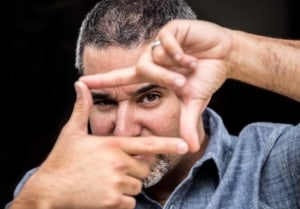



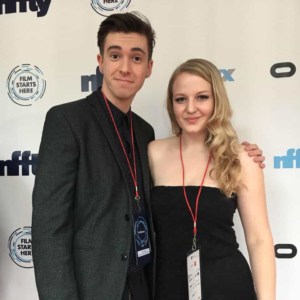
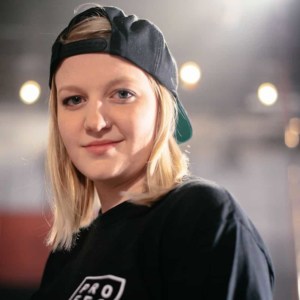

 [37:42] Growing a network of clients
[37:42] Growing a network of clients